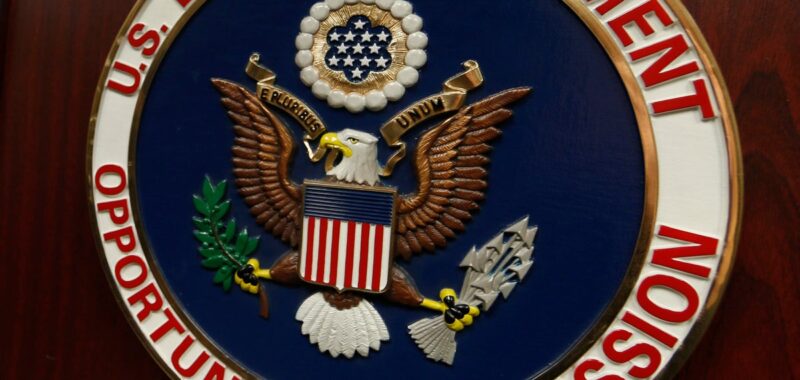Bismarck, N.D. — More than 9,000 Catholic employers don’t need to abide by federal regulations protecting workers who seek abortions and fertility treatments under a ruling issued this week by a federal judge in North Dakota.
Last year, the Catholic Benefits Association and the Bismarck Diocese sued the federal Equal Employment Opportunity Commission, saying it issued regulations and guidelines that “ran roughshod” over their religious rights.
U.S. District Judge Daniel Traynor later granted a preliminary injunction to temporarily block the commission’s final rule for the Pregnant Workers Fairness Act and enforcement guidance for harassment protections for workers that includes gender identity under sex-based discrimination.
On Tuesday, Traynor issued a permanent block on the regulations, finding the association and the diocese succeeded on the merits of their claim that the Pregnant Worker Fairness Act violated a federal law protecting religious freedom.
The judge said the case’s facts and evidence haven’t changed since the initial block he issued last year.
Last year, he wrote: “It is a precarious time for people of religious faith in America. It has been described as a post-Christian age. One indication of this dire assessment may be the repeated illegal and unconstitutional administrative actions against one of the founding principles of our country, the free exercise of religion.”
The Pregnant Workers Fairness Act took effect in 2023. The law requires covered employers make reasonable accommodations for workers’ pregnancy or childbirth-related needs. In 2024, the EEOC issued the rule implementing the law and the harassment enforcement guidance.
In earlier court papers, the association and the diocese said, “The combined effect of EEOC’s pronouncements is that they require CBA Members, contrary to their Catholic faith, to accommodate their employees’ abortions and immoral fertility treatments, to use false pronouns when requested by transitioning employees, to abstain from expressing Catholic teaching regarding sexual issues, and to give employees of one sex access to private spaces reserved to those of the other sex.”
The EEOC previously asked the judge to deny a permanent injunction and said the other side can’t back up its claims.
Attorney Martin Nussbaum said his clients are “very thankful to the federal judiciary for vindicating religious freedom rights” in the case and previous ones involving the association.
“One of the things that we’ve seen is an emerging practice on behalf of some of the federal administrations – we also see this in certain states – a desire not only to mandate immoral benefits but to impose speech codes that would be contrary to Catholic values,” such as the commission’s harassment guidance, Nussbaum said. “But the speech codes go beyond pronouns to even speaking about what Catholic teaching is, and we’re just grateful to this court for protecting the freedom of speech of Catholic organizations as well.”
The Associated Press emailed the Equal Employment Opportunity Commission seeking comment.
The Catholic Benefits Association serves more than 9,000 Catholic employers and has about 164,000 employees enrolled in member health plans, according to its website.

